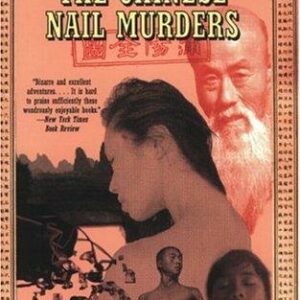Tracker
$9.99
| Title | Range | Discount |
|---|---|---|
| Trade Discount | 5 + | 25% |
- Description
- Additional information
Description
The sixteenth novel in Cherryh’s Foreigner space opera series, a groundbreaking tale of first contact and its consequences…
It’s been a year of upheaval, since Bren Cameron’s return from space—a year when he and the aiji-dowager, one of his most powerful atevi allies, returned home from their two-year interstellar mission to find the government overthrown and their world in chaos.
Now, at last, things are calming down; the Assassins’ Guild is functioning again, working out its internal difficulties, and Bren is settling back into his routine: not as Lord of the Heavens; not—to his regret—as Lord of Najida peninsula, where his leisure estate is located; but as paidhi-aiji, an official in the atevi court.
His current ambition is to keep himself and his bodyguard out of harm’s way, and to shepherd the aiji-dowager’s daring new trade agreement through the appropriate legislative committees. Combined with Tabini-aiji’s recent appointment of his young son Cajeiri as his official heir, Bren’s workload is challenging, but at least things on the atevi world seem to be on the right track.
Something is coming, however, quietly, stealthily, just the first ominous twinkle of a new star in the heavens….
Praise for the Foreigner series:
“C.J. Cherryh’s splendid Foreigner series remains at the top of my must-keep-up reading list after two decades.” —Locus
“This is the kind of anthropological SF of which [Cherryh] is an acknowledged master.” —Booklist
“A seriously probing, thoughtful, intelligent piece of work, with more insight in half a dozen pages than most authors manage in half a thousand.” —Kirkus Reviews
“One of the best long-running SF series in existence…Cherryh remains one of the most talented writers in the field.” —Publishers Weekly
“This is one of the best science fiction series currently running….by this point, the series has turned into a complicated set of thrillers involving political and factional turmoil, as well as a close and detailed examination of the troubled interactions between human and alien cultures.” —Strange Horizons
“My favorite science fiction series is C. J. Cherryh’s Foreigner Universe. Cherryh deftly balances alien psychology and human vanities in a character caught between being human and part of an alien race.” —Denver Post
“Cherryh plays her strongest suit in this exploration of human/alien contact, producing an incisive study-in-contrast of what it means to be human in a world where trust is nonexistent.” —Library Journal
“A large new novel from C.J. Cherryh is always welcome. When it marks her return to the anthropological SF in which she has made such a name, it is a double pleasure. The ensuing story is not short on action, but stronger (like much of Cherryh’s work) on world-building, exotic aliens, and characterization. Well up to Cherryh’s usual high standard.” —The Chicago Sun-Times
“[Cherryh] avoids any kind of slump with a quick-moving and immediately engaging plotline, and by balancing satisfying resolutions with plenty of promises and ominous portents that are sure to keep readers’ appetites whetted.” —RT Reviews
“These are thinking man’s reads with rich characters and worlds and fascinating interactions that stretch out over many generations.” —SFFWorld
“Cherryh’s forte is her handling of cross-cultural conflicts, which she does by tying her narrative to those things her point-of-view character would know, think, and feel.”—SFRevu
“The Foreigner series is about as good as it gets…so finely and densely wrought that you may end up dreaming of sable-skinned giants with gold eyes, and the silver spun delicacy of interstellar politics.” —SF Site
C. J. Cherryh planned to write since the age of ten. When she was older, she learned to use a typewriter while triple-majoring in Classics, Latin, and Greek. With more than seventy books to her credit, and the winner of three Hugo Awards, she is one of the most prolific and highly respected authors in the science fiction field. Cherryh was recently named a Damon Knight Memorial Grand Master by the Science Fiction Writers of America. She lives in Washington state. She can be found at cherryh.com.1
The sun touched the end of the bay, the end of a good day. A ragged streak of cloud lit up gold with a shadowy attempt at pink.
Jaishan ceased her leisurely tacking toward the sunset and turned for port with an experienced hand at the helm. Gold sunlight swept her deck, cast shadows down the planks as the massive boom swung over.
The sail thumped and filled with the shoreward wind, a purposeful course, now homeward bound for Najida estate.
“Fascinating system.” Jase Graham, spacefarer, turned and took a firm grip on the rail as water began to rush and foam under the bow.
Bren Cameron leaned easily beside him, elbows on the same rail. He loved the sound and the feel of the sea. They could have had a bit more speed, but that wasn’t what they wanted now. This was the last bit of sailing they’d get before Jase went back to the space station overhead, and good-byes were in the offing.
Tano was at the helm, enjoying the job—atevi, native to the world, as humans were not: black-skinned, golden-eyed, a head taller than most humans. Tano’s partner Algini was close by him; and their teammates, Banichi and Jago, were lounging on the equipment locker, against the rail, enjoying the wind and the absolute absence of threat.
Bren was glad to see it. Rare that his bodyguard got an hour off, let alone whole days, let alone a week of such days. His bodyguard was still in uniform—Assassins’ Guild black happened to be all they owned. But they had shed their heavy leather jackets in the sun today, and gotten in a little fishing.
Banichi was certainly moving far better than he had a week ago. He was zealously keeping up with the exercises on his arm and shoulder. He was also getting impatient with the rehab schedule and entirely ready, Banichi assured them all, to resume ordinary duty.
Being on the boat meant security enough that Banichi and the rest of them could relax. Ordinary duty out here in the wide bay need involve nothing more strenuous than watching the horizons and casting a line.
There was hardly anywhere on the planet more secure than where they’d been the last number of days. The aishidi’tat, the Western Association of the atevi, was at peace—still in shock from the loss of two lords, the investiture of an heir, and the return of the old leadership of the Assassins’ Guild—but at peace. Banichi, of that Guild, had been no little involved in the event—which was why he was under doctor’s orders not to push anything, and why it took being out in the middle of all this water, with a navy ship out across the bay—to make Banichi admit there was indeed leisure to relax.
Banichi laughed at something his partners had just said. That was a very good thing to hear. It unwound something in Bren’s own gut.
“First vacation in a long time,” Bren said to Jase, beside him. “You’ve got to come down to Earth more often. You’re good for us.”
“My duty-book’s going to be stacked and waiting for me,” Jase said with a sigh. “Anything the senior captains don’t want to handle, guess where it’ll go in my absence. Right to my desk. —But it’s worth it. I’ve enjoyed this.”
“Even the gunfire?”
“Well, I mostly missed that part.”
“Not all of it.”
“It was an experience,” Jase said. “And your own duty-book’s going to look like mine, I’m afraid. You’ve still got the chaff from that mess up north to deal with. Wish I could help with that.”
“Minor,” Bren said. It said something about recent months, that he could call the ruin of an historic atevi clan “minor.” But it was minor—now that the Kadagidi clan’s influence had diminished.
And diminish, yes, it had. The aishidi’tat, the Western Association, was in fact down two clan lords since the start of Jase’s visit, and politics was certain to surround the replacements, but Bren had some hope there would be a quick, sensible solution—as yet unthought-of—but it was not his job to think of it. The aiji in Shejidan, Tabini, was firmly in power. The Assassins’ Guild, the core of the judicial system, was functioning as it had not in years. And Bren, paidhi- aiji, translator to the court, intermediary-at-large, could now draw a deep breath and hope all the agreements he’d pinned down stayed put.
They were both human, he and Jase. Bren, born to the planet and Jase, to the starship Phoenix. Jase had been a special child—born of long-dead heroes, destined to be something a dead man had known and Jase had never learned. That he’d come early to a captaincy—one of the four who held that post—was destiny, maybe; genetics and politics, certainly— “But I don’t know what I was for,” Jase had put it.
“Does anybody, really?” Bren had answered that one, and Jase had thought about it and laughed.
So here they were—Jase a ship’s captain, visiting a planet that had so much history with his ship; and Bren himself—wielding a power he’d never remotely planned on holding, disconnected from Mospheira, and inextricably involved in Tabini-aiji’s affairs. But alike. Intermediaries, both, trained to mediate, to communicate—both of them grown into an authority neither of them had planned to hold and a job nobody had imagined would exist. Mediators. Negotiators. Translators not just of language, but of mindsets and cultures.
Humans were the cosmic accident on the planet, involving Phoenix and a desperate human colony, centuries ago. Phoenix had arrived at the Earth of the atevi, crew and passengers destitute and dying, an unknown world their last reachable hope.
But the world already had a population. Atevi had been chugging along in their steam age, having achieved railroads, having achieved a reasonably peaceful government long before humans had ever appeared in their heavens.
Phoenix built an orbiting station for a base, manned it, and left in search of another home for its colony. But the humans left behind saw what they wanted, and reached for it, flinging themselves earthward, desperately, on what atevi called the petal sails, one after another, until the station could no longer sustain itself, and the final handful left, shutting the station down, leaving it to drift silent, abandoned.
And the descendants of those desperate colonists now formed a terrestrial nation: Mospheira. The island of that name lay a day’s sail away, too far across the strait to spot from this vantage, even as a haze above the sea. It was a large island, tag-end of the massive monocontinent on which atevi dwelled, easily within reach of any determined individual with a rowboat and a mission.
But it was isolated by atevi law—excepting one appointee: the paidhi, the human interpreter to the atevi court.
These days, that would be him.
The paidhi’s original job, as Bren had undertaken it, had been, first, to assure an accurate flow of information between humans and atevi; and secondly to turn over human technology to atevi at a measured, studied rate, so as not to upset the peace of the world. That was how the original humans had bought their safety, having lost the War of the Landing.
And humans, Mospheirans now, had locked themselves in technological synchrony with the atevi of the mainland, turning over the safe parts of their precious Archive, not accelerating the pace of development, not pushing atevi into change that might turn dangerous, that might cause upheaval, and war.
Mostly the paidhi’s job had been to collect words—whatever atevi words the sitting paidhi judged humans could accurately and safely use, in the University-controlled interface. It was a glacially slow process. The paidhiin had handled the careful, meticulous phrasing of official communications, but held no control over the content.
That was what Bren had started out to be—a maker of dictionaries, a court functionary who sat on the steps of the aiji’s dais, when court was in session, and who spoke only rarely, on direct request. The utmost ambition of Bren’s life in the first year had been to avoid a second War of the Landing on his watch. He could not, in the beginning, even edit a document. He could only say: excuse me, sir, please, take no offense, but that word has a connotation . . .
But he’d had to deal with Tabini-aiji, who wanted to talk to him, and wanted verbal answers. Fast.
He’d slipped over into actively speaking the language the first week. Tabini had pushed that situation.
Pushed him until he’d begun to operate outside the rules—begun to speak the language. Now he primarily thought in it.
Tabini-aiji wanted more technology. Under Tabini, planes became jets, radio became television, and industry proliferated. Atevi took to computers and improved what they were handed, finding their own path, making their own discoveries.
Then Phoenix turned up, back from centuries of absence, bringing a wealth of old history, old human quarrels, and a single question: which government on Earth had the industrial power they needed? Cultural kinship linked the ship, for good or ill, to Mospheira. Need linked them to Tabini-aiji.
The job of the paidhi-aiji instantly changed. More, the ship appointed its own paidhi—Jase, who’d parachuted down the way the colonists had—to build a relationship with the continent, which had the range of earthly resources a space program needed. It had meant Jase learning Ragi. It had meant atevi building a space program while Mospheirans argued about it. And ultimately it had meant getting atevi and Mospheirans to cooperate—because control of half the orbiting station had been the price of Tabini-aiji’s cooperation.
Everything had changed, like so many snowballs headed downhill. Atevi were in space now, equal partners with Mospheirans on the station in a fifty-fifty arrangement which had two command centers and two stationmasters, cooperating together in a three-way arrangement with the four Phoenix captains—of whom Jase was now third-senior.
And Bren Cameron had ceased to represent Mospheira at all, in any regular way. His personal loyalty—his man’chi, in the atevi way of putting it—rested on the atevi side of the straits, and not just because that was the job he could do best. He represented Tabini-aiji’s interests not only to humans on Earth and aloft, but to atevi lords on the continent, and he held a district lord’s rank in order to do it.
So he’d come a long, long way from Mospheira, mentally speaking—a long way from human allegiances and human politics. He’d not visited the island in nearly four years—two of which he’d spent in deep space, remote from the world, one of which he’d spent down here, trying to patch the damage the push to space had done to the balance of power on Earth.
Of human contacts he still kept active, there was his brother Toby. There was Barb, who had been his lover, and now was Toby’s partner.
And there was Jase, now third-senior of the starship’s four captains—but still technically ship-paidhi, too. Jase knew atevi customs and he spoke Ragi, the principle atevi language, passably well.
And being ship-folk, a stranger to any planet, Jase’s mindset was not Mospheiran. Jase’s instincts might biologically match Mospheiran instincts, but his native accent was ship-folk, and he had never set foot on Mospheira, nor cared to go there.
Well, that was all right, in Bren’s thinking. There was still no one he had rather see in a position of influence among the ship-folk. Jase wanted the survival of Mospheira and the safety of the ship and the station aloft, and he wanted the survival of the atevi. They shared the same set of priorities.
And if there was one person on the planet who truly understood what he was and how he thought—it was Jase.
That was why, in Jase’s company, at the rail of a moving boat, Bren could draw breath right now with an ease he didn’t feel with others, even the atevi lords whose survival he fought to ensure, or the Mospheiran president he tried to keep generally abreast of whatever atevi were doing—or, for that matter, with the aiji he served. They shared a job. They shared the same worries. They served the same interests.
So perhaps it was a little selfish of him to wish his area of the world could float along in the lazy way it had been going for a few more days, just one or two days more, before he had to go back to what Jase called his duty-book.
By tomorrow evening he’d be back in that highly securitied apartment in the privileged third floor of the Bujavid, the great fortress and legislative center above the capital city. There’d be no duty-book, no computer files waiting for him on his return, but there would certainly be a message bowl sitting in his apartment foyer, a bowl overflowing with cylinders from people wanting a slice of his attention—lords and department heads with agendas that had been suspended for the last few weeks while the Assassins’ Guild had a meltdown and the aiji’s son celebrated his fortunate ninth birthday.
Missing from that bowl, to be sure, would be the unwritten problems—a determined handful of people who wouldn’t write to the paidhi-aiji politely and officially advising him they wanted him dead, and who wouldn’t be Filing Intent with the Assassins’ Guild. Oh, no: a legal Filing would never pass muster with the Guild, let alone Tabini-aiji, and his enemies couldn’t gain any partisan following to demand it. So they couldn’t succeed above- board. That meant anything that might come at him would not follow the rules.
That problem went with the title, the estate, the boat. He’d gotten back to the world a year ago from a two-year voyage into deep space—to find the aishidi’tat in chaos and Mospheira bracing for war.
He and the aiji-dowager and the will of the people had set Tabini-aiji back in power, a movement carried on the shock of their arrival and the revelation that neither Tabini nor his young heir was dead.
Well, things were better. He’d actually been able to take a vacation—give or take a few stitches in his scalp, and Banichi’s need for rehab on that shoulder.
And now . . .
Now Jaishan had put her stern to the setting sun and her bow toward the end of the bay. Her sail had filled with a golden sunset, and the west wind was carrying her home with the hum of the rigging and the rush of water under her white hull.
And that was all he needed think of for the better part of an hour.
“Want to take the helm for a while?” he asked Jase.
Jase laughed. “They never let captains take the controls up there, you know. Helm won’t have it.”
“Well, there’s that island over there to port. That’s the only thing in this part of the bay you have to miss. Want to do it?”
“Love to,” Jase said, and they left the rail and crossed the deck. Tano was perfectly content to turn over the wheel and instruct a novice how to handle it. Easy job, with a perfect wind carrying them and not much to do but keep Jaishan’s bow headed for home.US
Additional information
| Weight | 7.8 oz |
|---|---|
| Dimensions | 0.9600 × 4.2400 × 6.7200 in |
| Series | |
| Imprint | |
| Format | |
| ISBN-13 | |
| ISBN-10 | |
| Author | |
| Audience | |
| BISAC | |
| Subjects | CJ Cherryh, sci fi book, sci-fi books, books science fiction, hard science fiction books, space opera science fiction, future noir, foreigner, Alien Contact, space colony, sci fi books, cherryh, foreigner series, foreigner universe, bren cameron, atevi, political science fiction, hard sci fi, political sci fi, hard science fiction, space opera, science fiction, aliens, novels, FIC028090, Space, alien, science fiction and fantasy, FIC028020, fiction, sci-fi, robots, science fiction books, sci fi, interplanetary, tracker, fiction books, books fiction |










